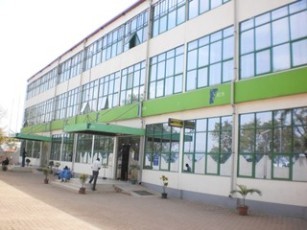South Sudan warns of sanction effects on other countries
September 15, 2014 (JUBA) – South Sudan on Monday warned that threats by the United Nations and the west to impose sanctions on its leaders could affect countries within the region.

Such sanctions, he added, would impact on foreign businesses and commercial establishments, including banks and hotel industries operating in the country.
“If foreign businesses, especially those in the commercial banks, like Kenya Commercial Bank, Equity Bank and other financial establishments which occupies a big space in our markets cannot repatriate their profits because of sanctions, then such actions will have dire consequences to the whole region and it is better a wise decision is made”, he said.
Nyipuoc, a close ally of president Salva Kiir, urged the governments of Kenya, Uganda, Ethiopia, Eritrea and Sudan to closely work with the international community to coerce rebel leader, Riek Machar into signing the Intergovernmental Authority on Development (IGAD) proposal for a peaceful settlement of the ongoing conflict.
“Our brothers in Sudan, Ethiopia, Kenya, Uganda and these other friendly countries in the region should accept working together with the international community to pressure Riek and his group to accept signing the IGAD protocol of agreed principles as the basis of negotiations,” said Nyipuoc, a former governor of South Sudan’s Western Bahr el Ghazal state.
“They should not shy away to tell him that: look the leadership has made a lot compromises for the sake of peace even when our people feel he should be held to account for atrocities, suffering, destruction and division of the country for personal interests,” he added.
The official’s remarks came in the wake of reports that the UN and its Security Council were considered sanctions on any of the two warring sides if they fail to agree within IGAD’s 45-days ultimatum.
KENYA’S CENTRAL BANK WARNS
Meanwhile the Central Bank of Kenya warned that sanctions on South Sudan may affect its commercial banks operating in the young nation.
“Sanctions to South Sudan could expose Kenyan banks to risks,” the bank said in a report on its website.
Policy makers, it said, should pay attention to any additional “punitive litigations” against financial institutions, regulators, companies and countries for violating sanctions or breaches of contract.
The 5 September report was jointly written and released by Capital Markets Authority, Insurance Regulatory Authority, Retirement Benefits Authority and the Saccos Societies Regulatory Authority.
KCB, East Africa’s biggest lender, Co-operative Bank of Kenya Ltd, Equity Bank Ltd and CFC Stannic Holdings Ltd are some of Kenya’s commercial institutions in South Sudan.
Both the East African regional bloc and the African Union previously threatened sanctions on individuals who block the peace process.
(ST).
